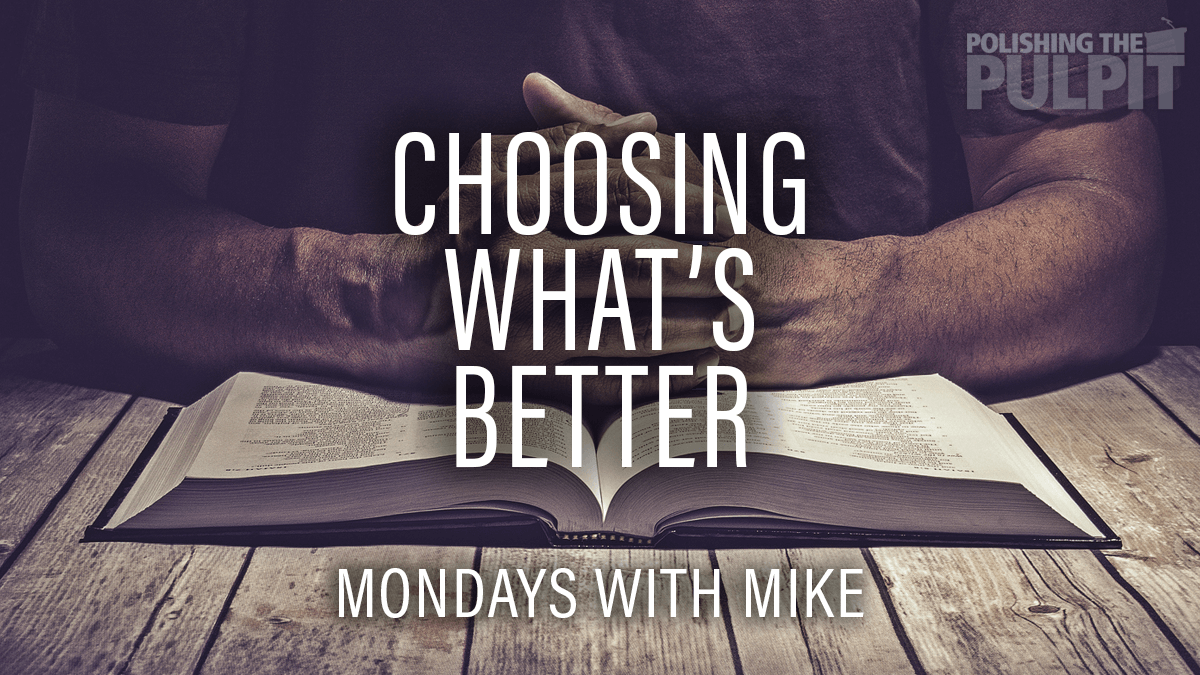Almost everywhere we turn today we are exposed to the idea that having is the key to happiness. After all, more and bigger are always better. A bigger and better house, car, computer, education, job, bank account, etc. – that’s what is needed for happiness.
Christians should be thankful for and enjoy all of God’s blessings (1 Tim. 6:17-19). Life is a stewardship, a sacred trust, and we should manage all of God’s good gifts with love and wisdom (Luke 16:10-12; 1 Cor. 4:1-2). The Bible also teaches the priority of having a proper work ethic (2 Thess. 3:6; Col. 3:22-25). But more and bigger do NOT always equal better as far as God is concerned! It’s only too easy for God’s gifts to become man’s idols, for stewardship to become selfishness, and for work or play to become our religion.
It is interesting to notice the first and last verses in the parable of the rich man that God called foolish (Luke 12:15-21). Jesus began by saying, “Take heed and beware of covetousness, for one’s life does not consist in the abundance of the things he possesses” (12:15). Jesus is plainly saying that more and bigger are not necessarily better. The Lord concludes the parable by saying, “So is he who lays up treasure for himself, and is not rich toward God” (12:21). What we truly treasure is a great indication of whether we are rich or a pauper!
In examining the dictionary the first two definitions of “better” are 1. Of superior quality or excellence. 2. Morally superior; more virtuous. It seems to me more people need to combine these definitions if they want the joy of having real treasure. More and bigger certainly were not better in the case of the rich man in Luke 12! Sometimes more and bigger cost far more than they’re really worth.
The book of Proverbs repeatedly emphasizes this point. “Better is a dinner of herbs where love is, than a fatted calf with hatred” (15:17). “Better is a little with righteousness, than vast revenues without justice” (16:8). “Better to be of humble spirit with the lowly, than to divide the spoil with the proud” (16:19). “He that is slow to anger is better than the mighty, and he who rules his spirit than he who takes a city” (16:32). “Better is a dry morsel with quietness, than a house of feasting with strife” (17:1). “Better is the poor who walks in his integrity than one who is perverse in his lips, and is a fool” (19:1; 28:6). The book of Proverbs was written to encourage us to make better choices, decisions made out of the wisdom of loving our God and seeking to please Him in every aspect of our lives.
Things cannot satisfy the soul’s deepest longings. More and bigger do not always equal better. The Christian perspective is far better: “while we do not look at the things which are seen, but the things which are not seen. For the things which are seen are temporary, but the things which are not seen are eternal” (2 Cor. 4:18). Let’s choose what is really better and encourage others to do the same!
Mike Vestal







